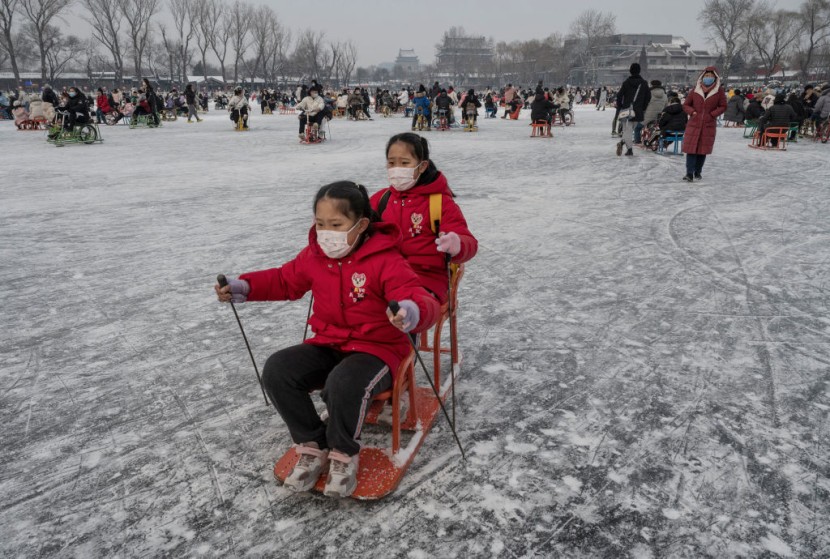
The future of snow sports is at risk due to climate change, and conditions are getting more dangerous for athletes and participants, experts warn in a report released days before the kick-off of the Bejing Winter Olympics.
Artificial snow at the Winter Olympics
The Games, which is set to begin on February 4, will be the first Winter Olympics to utilize virtually 100% artificial snow. Over 100 snow generators and 300 snow-making guns had been deployed and maximized to build ski slopes.
Researchers from the Sport Ecology Group at Loughborough University in England and environment organization Protect Our Winters said in a report that the method is "energy and water-intensive" and frequently uses chemicals to delay the melting of ice, per Reuters.
Moreover, the report warned that the use of artificial snow "delivers a surface that many competitors say is unpredictable and potentially dangerous."
The two host cities of the Games, Beijing and Zhangjiakou, have naturally dry climates. Experts estimated that the Games would require 49 million gallons of chemically-treated water frozen through the snow machines.
China repeatedly says they would use only natural rainfall and recycled water to produce artificial snow. However, there have been concerns that the high water supply requirement for the international sports event might put additional pressure on the already scarce resources in the area, per CNN.
Researchers also noted that climate change has resulted in a decrease in natural snow in some regions. Water supply for snow-making is also dropping, which threatens the long-term future of the global winter sports industry.
"It is also reducing the number of climatically suitable host venues for the Winter Olympiad," the report said.
Read Also : Beijing Winter Games App Contain Security Flaws Experts Warn; Olympic Torch Relay Cut Down To Three Days
Risk for Athletes
Artificial snow also puts athletes at greater risks as it tends to create a faster and harder surface, which can cause more severe injuries when falls occur, according to the report.
"This is dangerous for athletes," said British freestyle skier Laura Donaldson, who competed at the 2002 Salt Lake City Winter Olympics. Athletes competing on man-made snow are at a higher risk of injury, she said, per BBC.
"If freestyle super pipes are formed from snow-making machines in a poor season, the walls of the pipe are solid, vertical ice, and the pipe floor is solid ice," she explained in the report.
China Purifies the Internet
Meanwhile, aside from imposing strict measures to manage the outbreak of COVID-19, the Chinese government aims to clean up the internet from "illegal" content before the Beijing Winter Olympics and the Lunar New Year, an important annual holiday in the country.
The Lunar New Year will be held from January 31 to February 6, coinciding with the Winter Games' start.
On Tuesday, the Cyberspace Administration of China announced its month-long internet "purification" campaign intended to build a "healthy, happy, and peaceful online environment."
According to the plan, key media sites' homepages, trending topic search lists, push pop-up windows, and important news content pages must all be carefully managed to present "positive information," with obscene, vulgar, bloody, violent, and other illegal or bad information being removed to create a "positive online atmosphere."
The watchdog also stated that it would crackdown on online rumors and prevent "illegal and immoral" celebrities from emerging.
Last year, Beijing launched a comprehensive regulatory push to enforce internet regulation and purge what it perceives as anomalies in the online space and the entertainment industry, per CNN.
Related Article: Slovenia Shocks Beijing by Showing Support for Taiwan, Receives Criticism From China
© 2025 HNGN, All rights reserved. Do not reproduce without permission.








